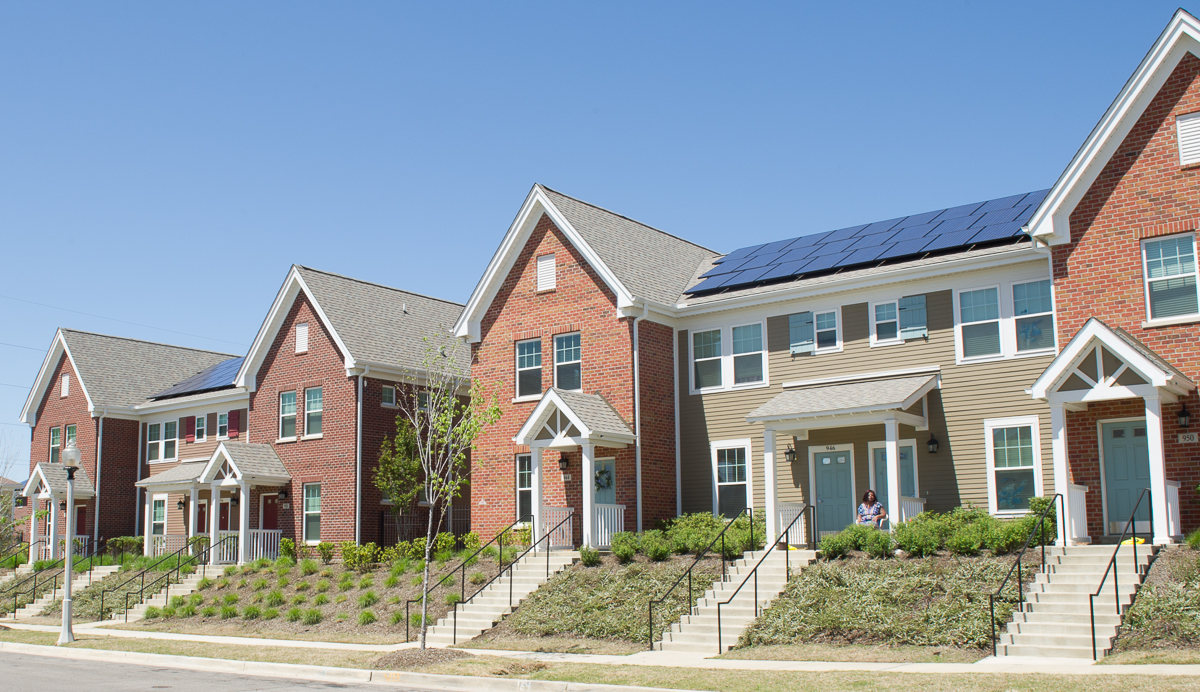Building codes in Nigeria is a term we hear used quite often in the Nigerian real estate sector, especially if you are involved in the construction and development of properties.
If you are an architect, developer, engineer, estate surveyor/valuer, or town planner, this is something you need to fully understand, as it has a lot of importance in the real estate world.
In simple terms, building codes are regulations established by the government and other regulatory bodies to ensure that buildings are safe and habitable for their occupants.
These codes cover a wide range of issues, including the structural integrity of buildings, fire safety, plumbing, electrical systems, and accessibility.
In Nigeria, building codes have been put in place to regulate the construction of buildings and ensure that they meet certain minimum standards.
This article will look closely at the definition, types, and purposes of Nigerian building codes.
What Are Building Codes?

Building codes are rules and regulations that guide the construction or development of property in a city or town.
It is considered a minimum requirement for the protection of properties and the lives that inhabit them, which is the fundamental duty of every design and construction professional.
The creation and implementation of building codes typically fall under the Department of Buildings of a city.
There might be rules that apply to construction from other city departments as well, including the Department of Public Works or the Department of Transportation.
All types of real estate, both commercial and residential, are subject to building codes. Building codes are constantly changed to adapt to advancements in science, society, the economy, politics, and technology.
Older buildings have to be “brought up to code” to remain in line with the rules put into effect after their construction.
This simply involves renovating the building to meet the current regulations. If they are not updated, a building inspector may find them unfit for habitation.
New buildings are expected to be constructed in line with the most recent building codes, failure to adhere to code requirements during construction May result in fines and project delays while issues are fixed.
Serious infractions may potentially result in the premature termination of a project.
Building codes cover every area of construction, including accessibility, mechanical, electrical, and plumbing systems, security, minimum air quality, and issues relating to fire and life safety.
There are rules that address a range of health and safety issues, including the number of fire escapes required in a single building and materials that are prohibited from being used in construction.
Cities vulnerable to a certain kind of natural disaster may also adopt codes specifically to address that kind of calamity.
For instance, in places in Nigeria prone to flooding, building codes should be put in place to mitigate the risks of flooding.
Building codes are also seen as insurance for the safety of life as well as the protection of owners, who may, in a variety of ways, need to defend their project in court at some point.
In which there would be a need to ascertain whether or not the building was constructed strictly adhering to all the building codes.
The owner and the professionals tasked with the development of the building will be evaluated based on how well they implement those regulations.
If the codes are well implemented, they could save you from an impending lawsuit or more.
Overview Of The National Building Code (NBC)

It is generally thought that most building codes in Nigeria were only implemented after a disaster.
Professor Kabir Bala, the chairman of the Council of Registered Builders of Nigeria (CORBON), claims that a number of events made the NBC 2006 necessary.
Increased concern over the deplorable state of the construction industry led to the creation of the National Building Code 2006 (NBC 2006).
The construction industry in Nigeria has suffered greatly from massive distortions. First, as evidenced by disasters like flood disasters, unplanned cities, the ever-increasing traffic jams in urban areas, the highly intimidating and extremely embarrassing records of building collapse, the unplanned and unregulated use of unsustainable construction materials, the use of building materials that are not durable and/or compatible with our environment, and other factors, the creation of these building codes was inevitable.
The Federal Government established a committee of construction experts to investigate the issues and create a draft National Building Code in an effort to sanitize the construction industry in Nigeria.
By effectively regulating the processes of design, authorization, construction, use and occupancy, location, and maintenance of all buildings and structures while taking into account Nigeria’s traditions and culture, technological advancements, and economic situation, the Code aims to provide the minimum standards necessary to safeguard life and property and to guarantee public health and welfare.
After careful deliberations, the National Building Code (NBC 2006), often known as the National Building Code, was drafted.
Also read: Cost of Roofing A 4-Bedroom Flat In Nigeria
In order to ensure good building practice through the attainment of quality construction, safety, and competence, the NBC 2006 set out minimum requirements for building pre-design, design, construction, and post-construction stages.
The National Building Code has included certain crucial policies that will encourage professionalism in the Nigerian construction sector and guarantee that each professional is responsible for his or her own actions.
This is due to the fact that the code explicitly outlines the obligations and duties of each professional.
In addition, the code has underlined the importance of teamwork during various construction production phases as well as other crucial tasks, including building surveys and the preparation of demolition schedules.
It has also established efficient ways to oversee, control, and enforce building construction standards in Nigeria.
Types Of Building Codes

1. National Building Code
The National Building Code is a thorough collection of guidelines for the Nigerian construction sector.
To guarantee that buildings are built in accordance with specific criteria and norms, the Federal Government first implemented these building codes in 2006.
Later on, the revised version of the National Building Code was released in 2019.
The National Building Code covers a number of aspects relating to the construction and development of buildings, such as site preparation, design, supplies, and construction methods.
It also offers instructions for the installation of services including plumbing, ventilation, and electricity.
The purpose of the code is to guarantee that structures are secure, environmentally friendly, and generally habitable by their occupants.
All types of real estate are subject to the national building code, including residential, commercial, industrial, and institutional buildings.
In Nigeria, the national building code is a requirement for all construction projects, and failing to abide by the code can lead to fines, penalties, and legal action.
To keep the National Building Code current and useful, it is reviewed and modified frequently.
The national building code is crucial for ensuring that buildings in Nigeria are built to high standards and that their occupants are safe and comfortable.
2. State Building Codes
State governments establish minimum safety requirements for structures within their territories through the creation of laws and regulations known as state building codes.
In Nigeria, each state has its own set of building regulations that specify what must be done in terms of building design, construction, and maintenance.
Nigeria’s state building codes cover a wide range of aspects, such as plumbing, mechanical systems, fire safety, electrical safety, and structural requirements.
The state building officials who are in charge of enforcing these codes assess building designs, inspect construction sites, and grant permits.
The major purpose of the state building codes is to make sure that structures are secure enough for people to occupy and use them.
These rules must be followed in order to prevent property damage, fires, and other hazards from injuring or harming the general population.
In order to ensure that structures are constructed to a high standard, the regulations also offer direction for builders, architects, engineers, and other professionals in the construction sector.
It is crucial to remember that while the state building codes provide minimum standards for building security, they do not ensure that a structure will be entirely secure or error-free.
Building upkeep and ensuring that they are secure for usage throughout time are the duties of building owners and occupants.
3. Local Building Codes
Local building codes in Nigeria refer to the rules governing the design, construction, and safety requirements of buildings within a particular locality or jurisdiction.
The local government, such as a city or town council, typically develops and enforces these regulations to guarantee that all structures under its jurisdiction comply with the necessary safety requirements.
Local building regulations differ from one area to the next since they are based on the unique requirements and circumstances of each locality.
Typically, they address topics like structural safety, electrical systems, plumbing, ventilation, and fire safety, in addition to topics like building design and construction materials.
In Nigeria, local building codes are enforced by relevant government agencies, such as the Federal Ministry of Works and Housing, the Federal Fire Service, the Nigerian Electricity Management Services Agency (NEMSA), and the Nigerian Building and Road Research Institute (NBRRI).
These organizations cooperate with state and local governments to make sure that all structures under their control adhere to the necessary safety requirements.
Local building codes must be followed to guarantee building structural integrity and occupant safety.
If these regulations are not followed, penalties, fines, or even the demolition of the offending structure may be imposed.
To guarantee that their structures are safe, structurally sound, and compliant with the law, builders, architects, and property owners must keep up with the most recent local building codes.
4. International Building Codes
The International Building Codes (IBC) is a set of building codes that have been created by the International Code Council (ICC) to promote consistency in building standards across various geographic areas and nations.
Despite being predominantly employed in the United States, the IBC has achieved great acceptance in Nigeria and other nations.
The IBC covers a wide range of building regulations, including those for accessibility, plumbing, electrical, and fire safety.
It is a complete set of rules that offers a foundation for safely and sustainably planning, building, and maintaining buildings.
The IBC’s implementation in Nigeria has aided in bringing building practices into compliance and raising the standard of construction projects.
Builders and developers can make sure that their projects are secure, durable, and suit the requirements of the users by abiding by the IBC’s norms and standards.
In general, the IBC is essential to ensuring that buildings are created and maintained in a way that is safe and sustainable for the community.
Its extensive use in Nigeria and other nations is evidence of how well it promotes consistency and best practices in building codes.
5. Green Building Codes
In Nigeria, environmentally friendly and sustainable building practices are encouraged through the green building codes.
These codes include recommendations and benchmarks for mitigating the negative environmental effects of buildings and fostering energy efficiency, water conservation, and waste reduction.
The GBCN is a nonprofit organization dedicated to advancing environmentally friendly building methods in Nigeria.
The Green Building Council of Nigeria (GBCN) created the Green Building Code (GBC) as a collection of rules to encourage environmentally friendly and sustainable building methods.
The GBCN develops and promotes green building regulations, standards, and guidelines in collaboration with industry stakeholders and governmental organizations.
Also read: See The Cost Of Roofing A House In The United States In 2023
These guidelines cover a range of topics, including site selection, building design, construction materials, energy efficiency, water conservation, indoor air quality, and waste management.
Given Nigeria’s constantly developing metropolitan areas and population, green building regulations are crucial.
These rules can significantly reduce the negative effects that buildings have on the environment, minimize energy costs, and enhance the health and well-being of building inhabitants.
Purpose Of Building Codes

Building codes are primarily intended to ensure that structures are built in a way that is sustainable, healthy, and safe.
This includes establishing minimum requirements for the components of buildings, structural systems, electrical and mechanical systems, and other crucial features of building design and construction.
1. Building Codes Protect People And Property
Building codes are designed to protect inhabitants from a variety of risks, such as unsafe wiring, fire prevention, and weaker structural integrity.
They set minimum standards for building design, construction, and upkeep in order to reduce the possibility of harm or death in the event of a fire, natural disaster, or other emergencies.
A city is better shielded from these dangers when it has modern building codes in place.
Building codes also ensure that buildings are made to withstand the forces of nature and resist the effects of wear and tear.
This aids in preventing structural problems that can result in collapse and harm to people and property.
To cut down on energy use and greenhouse gas emissions, building codes also advocate for energy-efficient construction techniques.
As a result, building owners and occupants may see significant economic savings while also reducing the environmental effect of structures.
2. Building Codes Work
According to the Building Codes Save study, adopting contemporary building regulations can help communities prevent losses from foreseeable natural disasters.
The analysis demonstrates that during a 20-year period, cities and counties with current building rules have prevented damages from natural disasters of at least $132 billion.
In addition to saving money, property damage is significantly reduced. Incalculable damages are thereby prevented, including the stress of temporary relocation, lost income, and community disruption.
3. Building Codes Are Always Improving
Building regulations are not static, they are continually changing to reflect new developments in building methods, materials, and technologies.
Building codes are revised to guarantee that constructions are secure, healthy, and long-lasting when new knowledge becomes available and building techniques advance.
A building that is constructed in accordance with the most recent codes will undoubtedly be up-to-date with the latest findings and technological advancements.
Model building regulations are updated regularly to include new information, such as findings from post-disaster studies, and are based on decades of construction expertise and experience.
Improvements to building codes can also lead to cost savings for property owners and builders.
By incorporating energy-efficient materials and designs, buildings can consume less energy and water, resulting in lower long-term operating costs.
4. Building Codes Help Your Community
The safety and well-being of a community are significantly enhanced by building codes. They are made to make sure that structures are built in accordance with accepted standards, laws, and regulations.
Buildings are made safer, more accessible, and more environmentally friendly because of these codes.
Building codes assist in preventing mishaps like fires, structural collapses, and other risks that could endanger people and property.
Building regulations can help a city save money by lowering insurance premiums, improving bond ratings, and facilitating the application process for federal grant funds.
Conclusion
In conclusion, building regulations are a crucial component of modern construction practices, and they are always changing and adapting as new technology and better practices are developed.
Without building codes, structures, and buildings would be less safe, less efficient, and less sustainable, and their construction and upkeep would probably be far more expensive.



